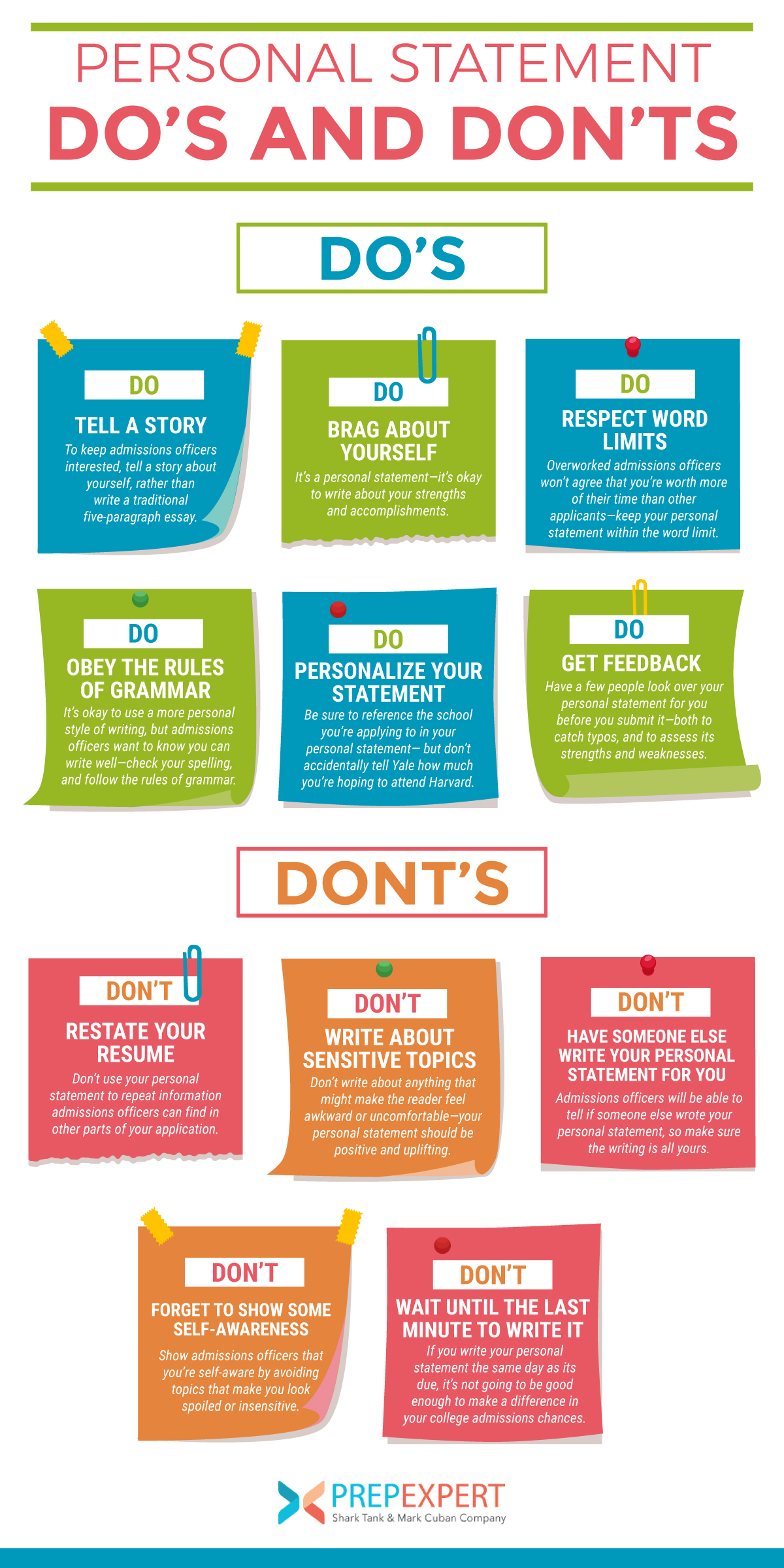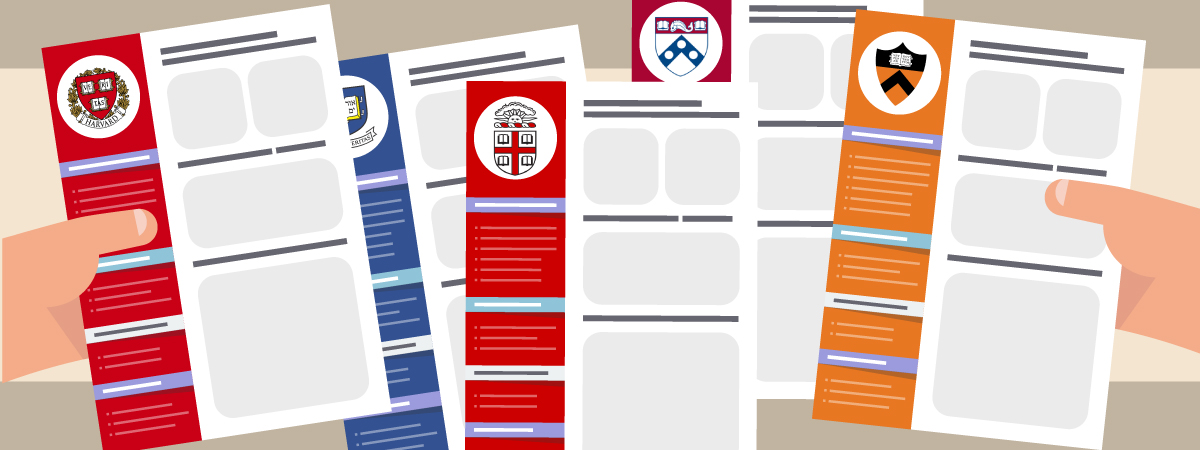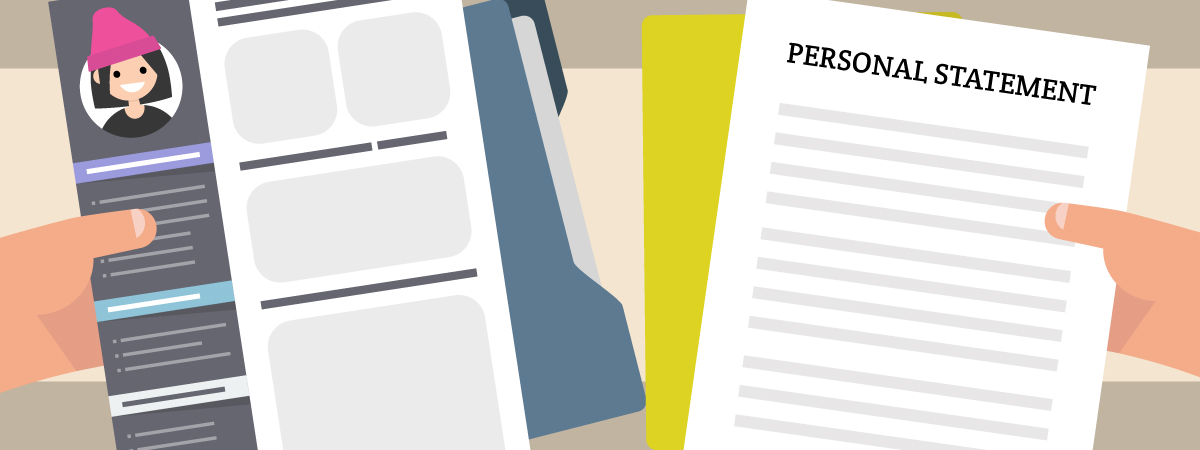LIVE MASTERCLASS: 7 Strategies For Parents To Help Your Child Earn $100,000 College Scholarships & Ace The New 2024 Digital SAT. Enroll Free!

Personal Statement Do’s & Don’ts
Your grades and standardized test scores are set by now, so the personal statement is your last chance to add something new to your college applications.
An effective personal statement is well-written, avoids cliches, tells a story about you that shows the admissions committee who you are, and brags a little—but doesn’t show off.
I’ve compiled a list of personal statement ‘do’s’ and ‘don’ts’ to help you as you work your way through your first few drafts.
For even more help with the college admissions process, including boosting that standardized test score, consider taking an SAT prep course or ACT prep course with Prep Expert.

Do Tell A Story
To keep admissions officers interested, tell a story about yourself, rather than write a traditional five-paragraph essay.
Admissions officers read thousands of personal statements every year. You want yours to be compelling and memorable. So, be creative—think about an experience or part of your biography that’s special to you, and write about it.
Avoid topics admissions officers are likely to read about over and over again in other personal statements. Plenty of people have volunteered for Habitat for Humanity or been the captain of their high school basketball team, for example.
Remember, you want to stand out—so, if you do write about something like this, put your own unique spin on it.

Do Brag About Yourself
It’s a personal statement—it’s okay to write about your strengths and accomplishments.
Most people aren’t comfortable bragging about themselves. But that is exactly what to do in your personal statement. Talk about:
- Sccomplishments
- Moments where you made yourself proud
Just be sure to do so tastefully.
How do you strike this balance? Show, don’t tell.
Don’t tell the admissions committee you’re a good person—show them you’re a good person by writing about a good deed that you performed.
Don’t tell them you’re the best basketball player in the state—set the scene and describe how you led your teammates to victory in the championship game.
A good rule of thumb here is to try and use verbs, rather than adjectives.

Do Respect Word Limits
Overworked admissions officers won’t agree that you’re worth more of their time than other applicants—keep your personal statement within the word limit.
Most colleges and universities have a word limit for personal statements. While you might think that you have a particularly compelling story to tell, and need more paragraphs than alotted, don’t give in to this temptation.
Being over by a couple of words isn’t a huge problem—admissions officers aren’t going to count your personal statement word for word—going way over the word limit though will not be a plus for your application.
As mentioned, admissions officers have to read thousands of personal statements every year—so don’t go and give them extra homework.
Besides, you can tell a great story about yourself within the word limit. Being confined to five paragraphs or a couple of pages forces you to write only about the most important and interesting aspects of your story.
If you’re having trouble meeting the word limit, on the other hand, you probably don’t have enough to say about the topic you’ve selected. Go back to the drawing board and try telling a different story.

Do Obey The Rules Of Grammar
It’s okay to use a more personal style of writing, but admissions officers want to know you can write well—check your spelling, and follow the rules of grammar.
Your personal statement is not the place to use slang or casual language. But do show off your command of vocabulary—you want your personal statement to show you’re ready for college-level writing.

Do Personalize Your Statement
Be sure to reference the school you’re applying to in your personal statement— but don’t accidentally tell Yale how much you’re hoping to attend Harvard.
Even if you’re using the Common Application, you should tailor your personal statement to each school to which you’re applying. Mention the school in your closing paragraph, for example.
It’s fine to recycle the same personal statement for several applications—almost everyone does this—but don’t simply use the find-and-replace function to change the name of the school and be done with it.
Do a thorough once-over to make sure you haven’t accidentally mentioned how much you want to attend Duke in the personal statement you’re sending to Georgetown. (This might seem like a no-brainer, but admissions officials report goofs like this do happen all the time.)

Do Get Feedback
Have a few people look over your personal statement for you before you submit it—both to catch typos, and to assess its strengths and weaknesses.
After all the writing you’ll be doing, you’ll need a few other pairs of eyes to help you see what you’ve been missing. So, once you’ve written a draft of your personal statement, it’s a good idea to show it to others—friends, parents, teachers—and ask their opinions.
Do they think you’ve done a good job introducing yourself to the admissions committee? Did you misspell the college’s name or leave a comma out of place? Let someone else’s fresh perspective tighten up what you’ve put together so far and make it as great as possible.

Don’t Restate Your Resume
Don’t use your personal statement to repeat information admissions officers can find in other parts of your application.
You want your personal statement to stand out in a sea of applicants, and you also want to show a side of you that isn’t shown in the other parts of your application. So, don’t make the most common mistake that many applicants make.
That mistake is simply writing a laundry list of your extracurricular activities and academic accomplishments. Admissions officials can already get this information by looking at your application and high school transcript.
[leadmagnet_five]

Don’t Write About Sensitive Topics
Don’t write about anything that might make the reader feel awkward or uncomfortable—your personal statement should be positive and uplifting.
There are certain topics—domestic violence or sexual assault, for example—that might have had a profound impact on your life. You could be tempted to write about these things, to show how you have successfully overcome adversity. Don’t.
Not to downplay these experiences and their personal importance, but these topics, and others like them, are simply too sensitive to write about in a brief personal statement.
It’s not a bad idea to write about how you have overcome adversity, but your personal statement should be positive and leave your reader feeling good, not uncomfortable.

Don’t Have Someone Else Write Your Personal Statement For You
Admissions officers will be able to tell if someone else wrote your personal statement, so make sure the writing is all yours.
This might seem like another no-brainer, but each year, plenty of applicants have someone else write their personal statements for them. These applicants mistakenly think that asking a stronger writer or a native speaker to pen their essay will leave their application in better shape.
However, admissions committees are alert to this practice, and if your ‘voice’ in your personal statement is significantly different from the one in your SAT or ACT essay, admissions officers are going to know they’re not reading your actual writing.
Submitting someone else’s work as your own—better known as plagiarism—is not a good look for your application, and might result in an automatic ding.

Don’t Forget To Show Some Self-Awareness
Show admissions officers that you’re self-aware by avoiding topics that make you look spoiled or insensitive.
Be aware of the advantages you’ve grown up with so far in life. Plenty of students want to write about their life-changing trip to Costa Rica, for example.
But, unless you do so in a way that shows true cultural awareness or engagement with global issues, all you’re really doing is bragging about a really cool vacation that you took.
Unfortunately, that’s not something an admissions officer wants to read about while reviewing a giant pile of applications on their desk.
[leadmagnet_two]
Nor is this type of personal statement likely to reflect well upon you against other applicants, who are writing about topics like being the first in their family to attend college, overcoming an illness, or being an immigrant, for example. Take a minute to think about how your topic choice will come across before writing.


Don’t Wait Until The Last Minute To Write It
If you write your personal statement the same day as its due, it’s not going to be good enough to make a difference in your college admissions chances.
Don’t deprive yourself of the opportunity to write something that’ll catch an admissions officer’s eye, and help you stand out among thousands of other applicants, by procrastinating on your personal statement.
An effective, well-written personal statement takes requires some serious time and thought to do. You should try and get started on it in the summer before your senior year, so when school begins all you have left to do is dot those I’s and cross those t’s.
For more test strategy, college admissions, and scholarship application tips sign up for our FREE class happening right now!
Personal Statement Do’s and Don’ts FAQ
What is a personal statement.
The personal statement is an essay that educates admissions officials about who you are and why you deserve to be admitted to their institution.
What are the elements of an effective personal statement?
How early should i work on writing my personal statement.
You should try and get started on it in the summer before your senior year.
What shouldn’t I do when writing my personal statement?
Don’t restate your resume, wait until the last second, be arrogant, write about controversial topics, or have someone else write it for you.
Related Articles

SAT Strategy: Mastering the Exam
Nov 12, 2024

College Admissions: Secrets to Stand Out and Succeed
Oct 22, 2024

How To Improve Your GPA
Oct 15, 2024
Written by Dr. Shaan Patel MD MBA
Prep Expert Founder & CEO
More from Dr. Shaan Patel MD MBA

Preparing for the ACT: Effective Prep Strategies
Preparing for the ACT can seem overwhelming, but with the right strategies, you can feel confident on test day. The…

SAT Test Dates for 2025
The SAT is offered several times a year– but what is the best time to take the SAT? Does it…

College admissions, especially to elite institutions like Princeton or Yale, often feel very mysterious and vague. There’s so much that…
